Olympic Medalists Making Comebacks
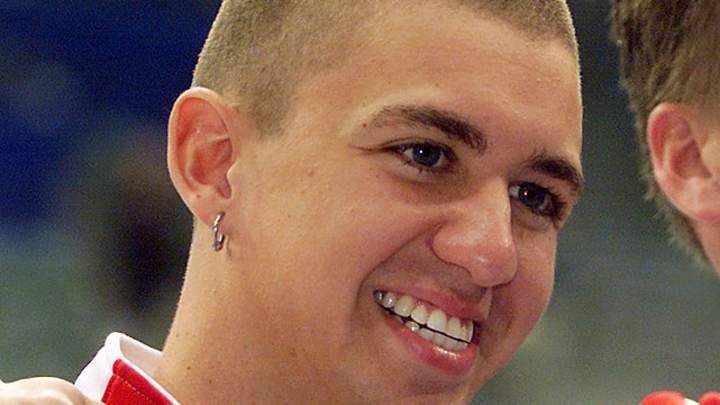
Olympic Medalists Making Comebacks
Anthony Ervin

Ervin, then 19, tied for the gold medal in the 50-meter freestyle at the 2000 Olympics with his best friend, Gary Hall Jr. Ervin was the first African-American to make the U.S. Olympic swim team. He later auctioned that gold medal on eBay for either $17,100 or $17,500, depending on which report you believe. Ervin gave that money to 2004 tsunami relief. After the 2000 Olympics, Ervin raced through the 2003 world championships and then retired. He considered a comeback for the 2008 Olympics, but it never materialized, and he floated away from swimming. Until this year. His name appeared out of nowhere on the U.S. Anti-Doping Agency's list of athletes who took drug tests in 2011. In September, Ervin, now 30, swam in a Masters meet in his native California. No official comeback has been announced, but the puzzle pieces are coming together.
Janet Evans
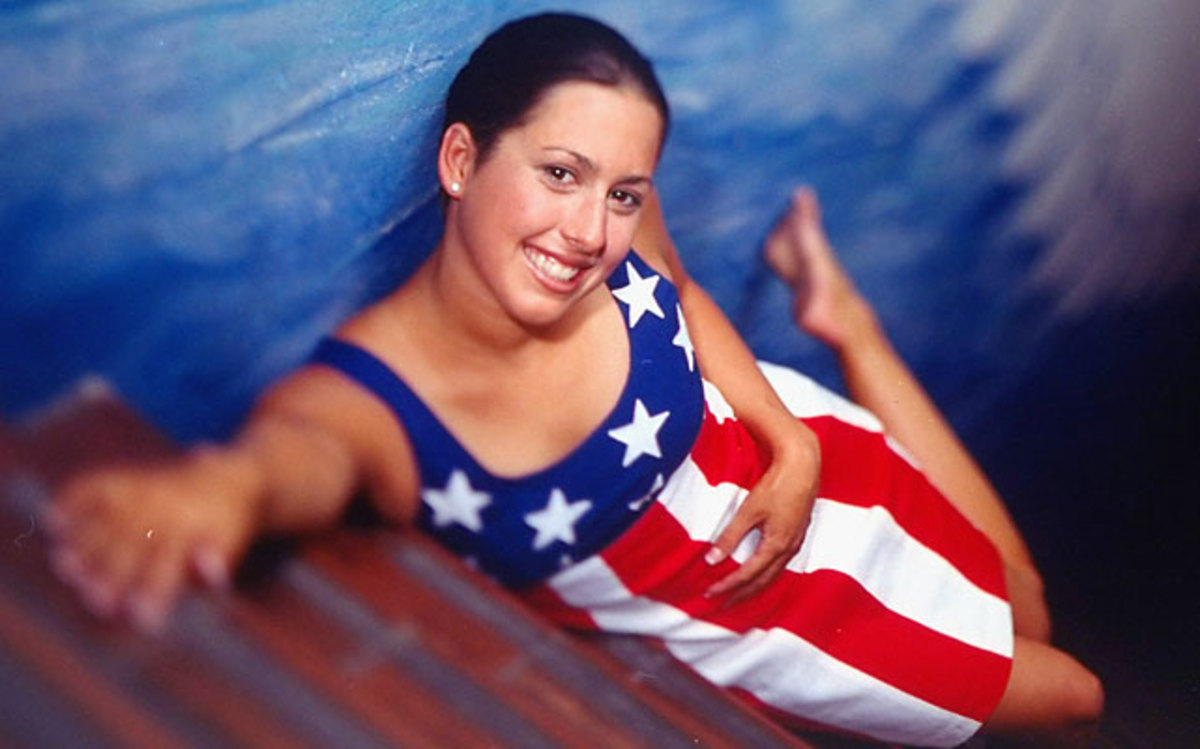
The former distance queen announced her comeback in June at age 39 (though she had been training for months before) and has since entered Masters competitions. Evans won triple gold at the 1988 Seoul Olympics (400 free, 800 free, 400 IM) as a 16-year-old. She added another gold and a silver at the 1992 Barcelona Olympics before retiring following the 1996 Atlanta Games, where she finished out of the top five in two events. Evans has yet to get the qualifying times necessary to compete in the 2012 Olympic Trials.
Brendan Hansen
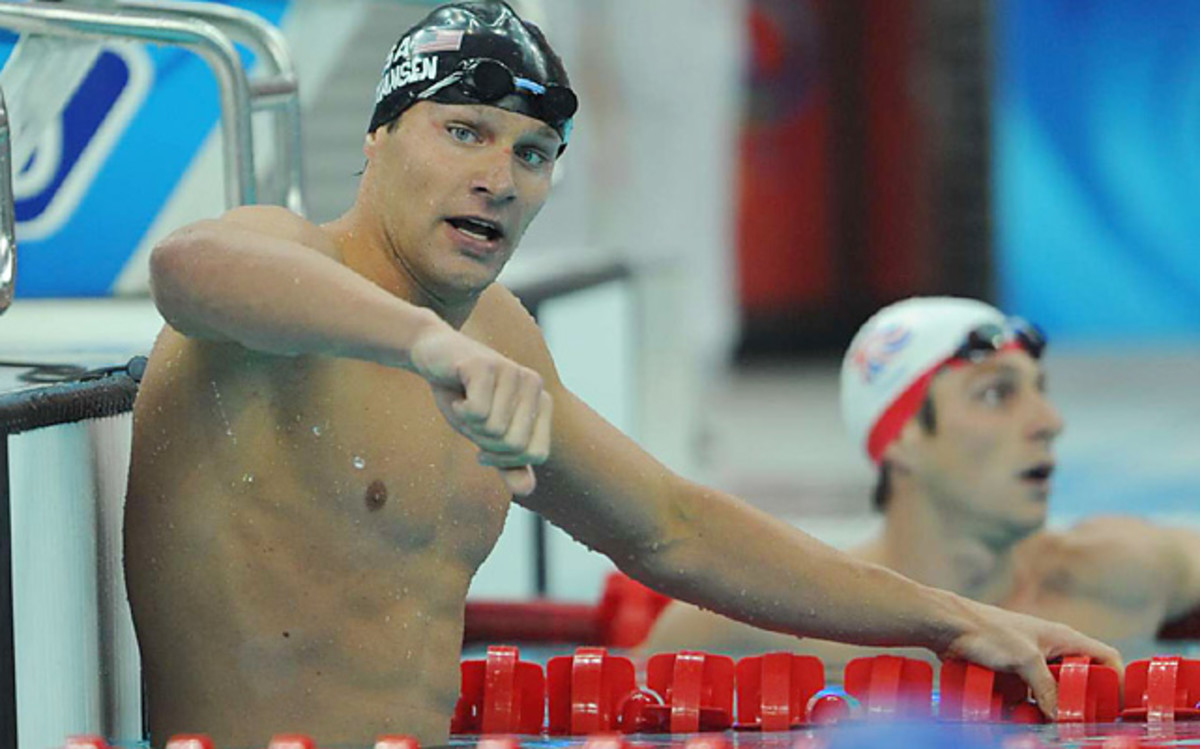
Hansen said he was fried after the Beijing Olympics, where he finished a disappointing fourth in the 100-meter breaststroke, watching longtime rival Kosuke Kitajima break his world record in the final. A four-time medalist over two Olympics, Hansen took two years off, competing in triathlons to stay in shape. Refreshed, he returned to competitive swimming this summer. He almost immediately returned to his post as the best American breaststroker, which is more a reflection of his peers than himself. Hansen is ranked Nos. 9 and 13, respectively, in the 100 and 200 breaststrokes this year. His chances of making the 2012 Olympic team appear strong, but winning his first career individual Olympic gold may be too tall a task.
Geoff Huegill
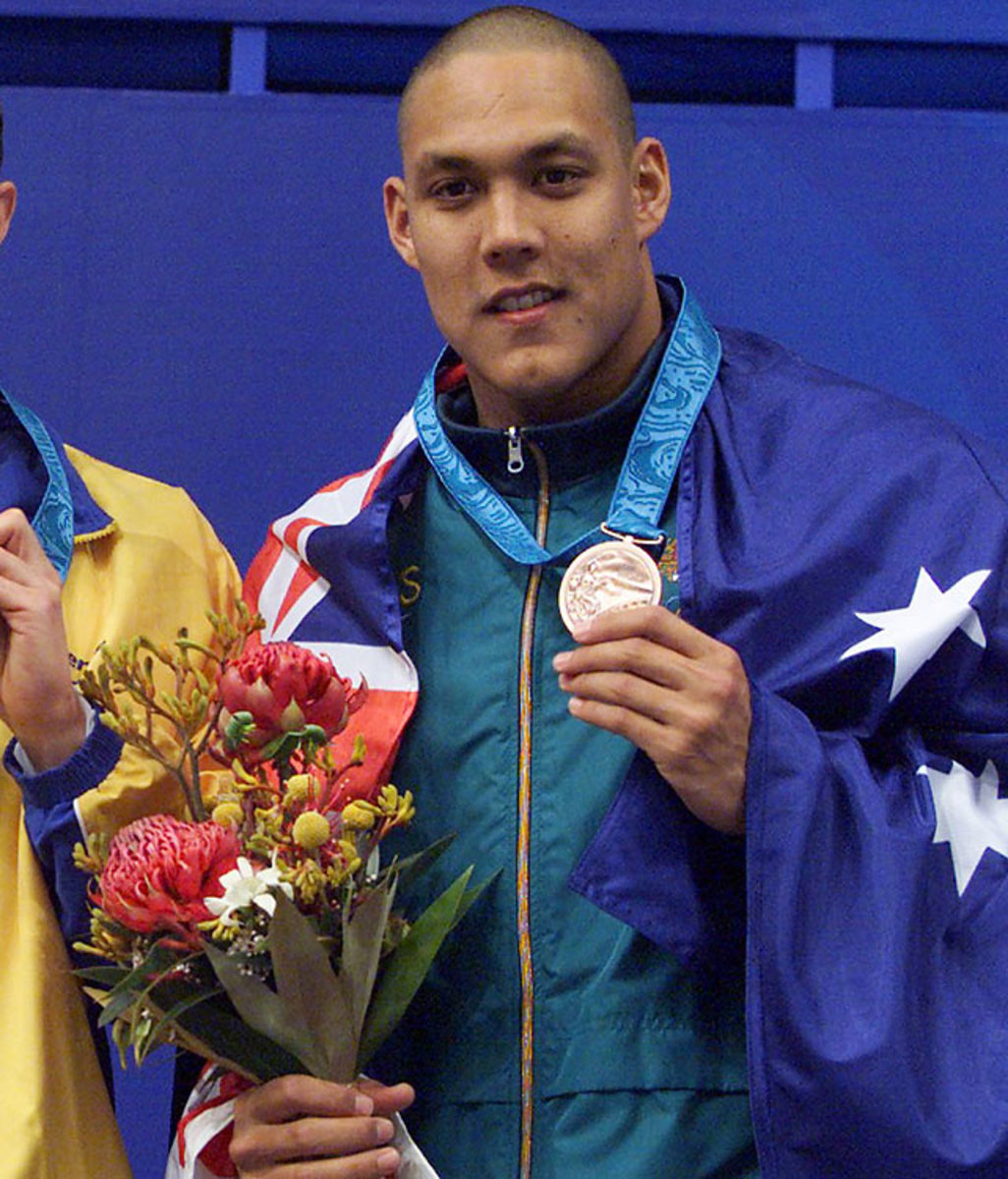
Huegill set the Olympic record in the 100-meter butterfly at the 2000 Olympics in Sydney. Unfortunately, he did it in the semifinals. Huegill was slower in the final, settling for bronze. Medal-less in 2004, he retired and fell out of shape. Four years later, Huegill announced his comeback after shedding about 90 pounds. Huegill won bronze at July's world championships in the 50-meter butterfly, an event not on the Olympic program. The only 50-meter race at the Olympics is the 50-meter freestyle. Huegill, 32, is ranked ninth in the world in the 100-meter butterfly this year.
Michael Klim
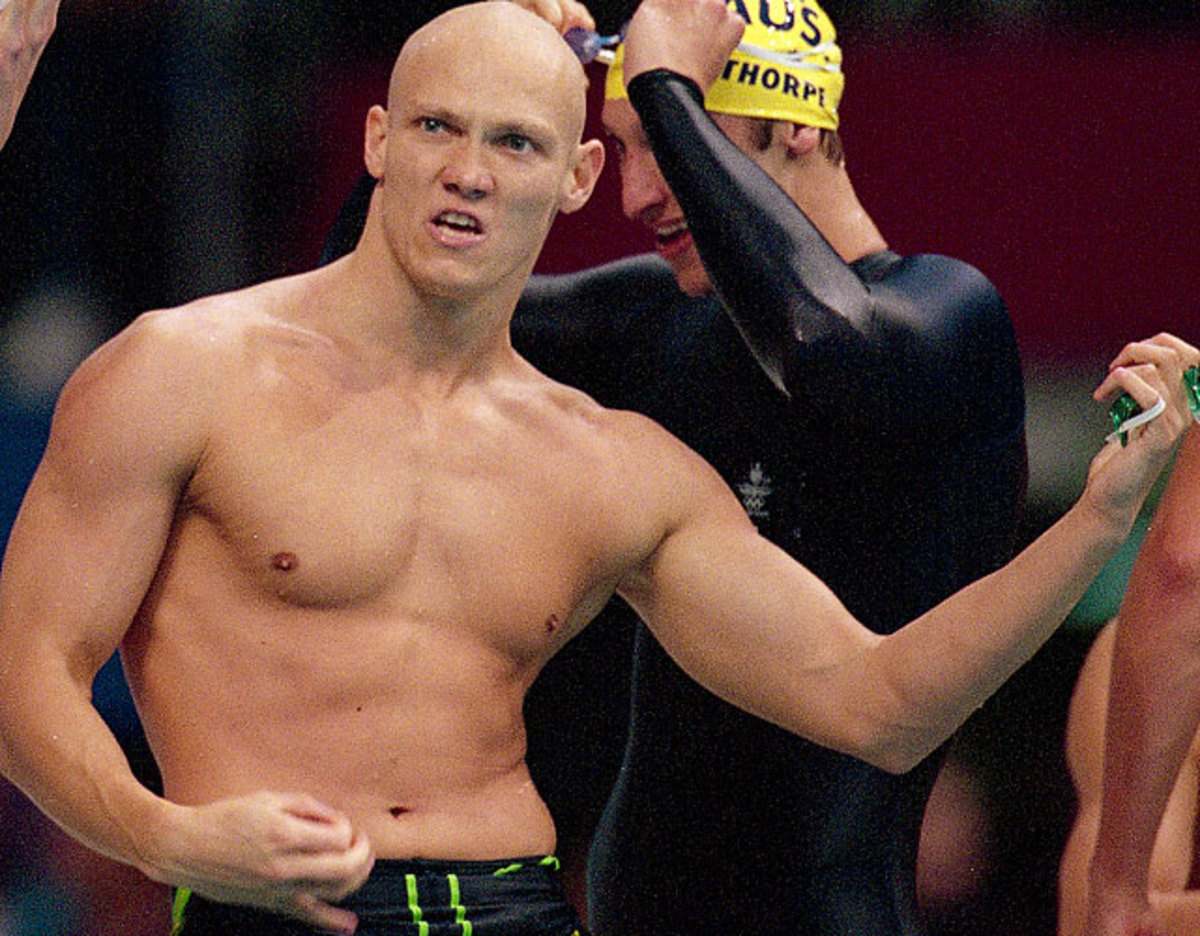
Swim fans remember Klim strumming his air guitar after the Aussies beat the U.S. in the 4x100 freestyle relay at the 2000 Olympics. Before that heated race, cocky American Gary Hall Jr. said the U.S. would "smash [the Aussies] like guitars." The Mr. Clean doppelganger was much more than a relay racer in his prime. Klim preceded Ian Thorpe, Michael Phelps and Ryan Lochte as the superstar of swimming, winning seven medals at the 1998 world championships. In three Olympics, Klim only won one individual medal (silver in the 2000 100 fly) and retired before the Beijing Olympics. His February comeback announcement was overshadowed by Ian Thorpe's. Like Thorpe, Klim, 34, aims for Australia's 4x100 freestyle relay team but a spot is by no means guaranteed. A reportedly ill Klim swam a slow 51.7-second 100 free in his April comeback meet, a time that won't be good enough come Olympic Trials.
Ed Moses
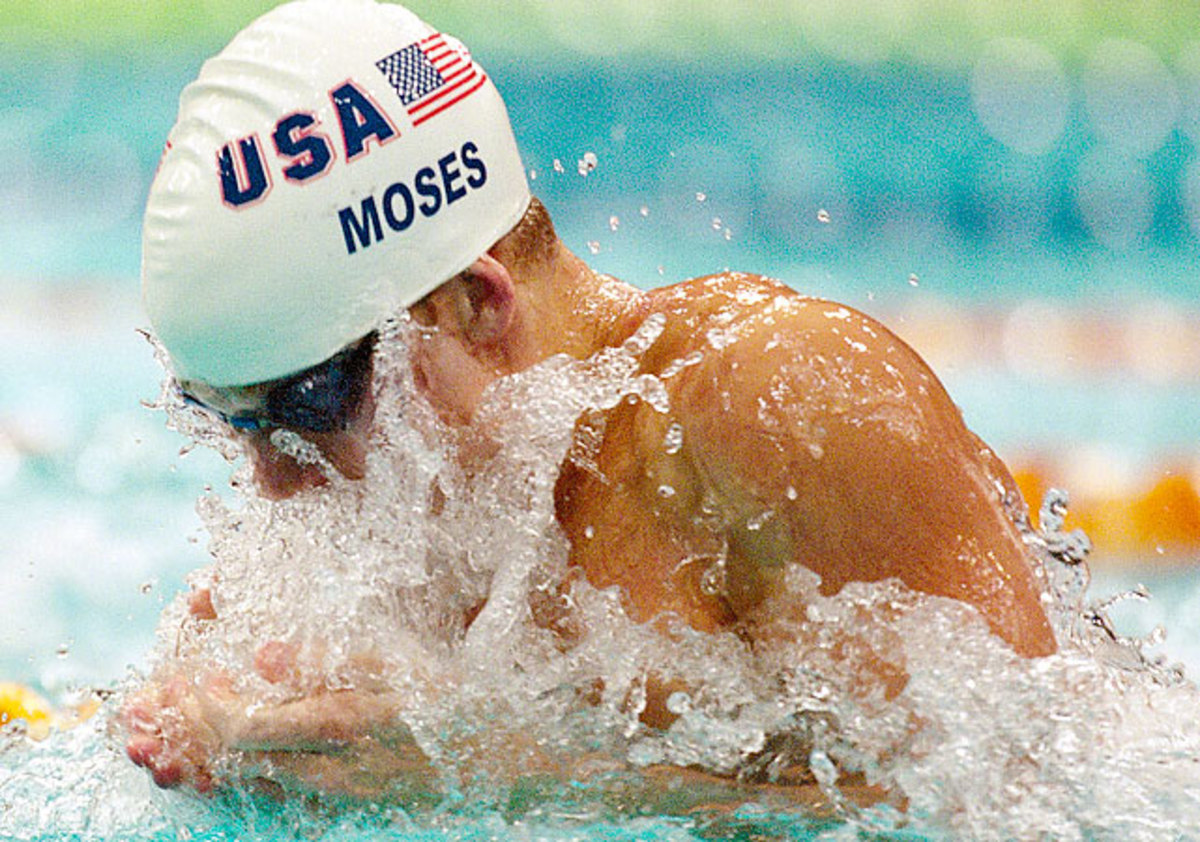
After missing the 2004 Olympic team, Moses took a winding road in retirement from swimming, from Virginia to Florida to California, playing golf with Arnold Palmer and going on TV in between. Moses had capitalized on his talent as a young breaststroker at the 2000 Olympics, taking silver in the 100 breast and gold in the medley relay. He was only 20. Coming back at 31, Moses sees that breaststroke is probably the thinnest stroke on the U.S. men's side. His times from a decade ago could make the 2012 Olympic team, but he hasn't gotten back to that form yet.
Ian Thorpe
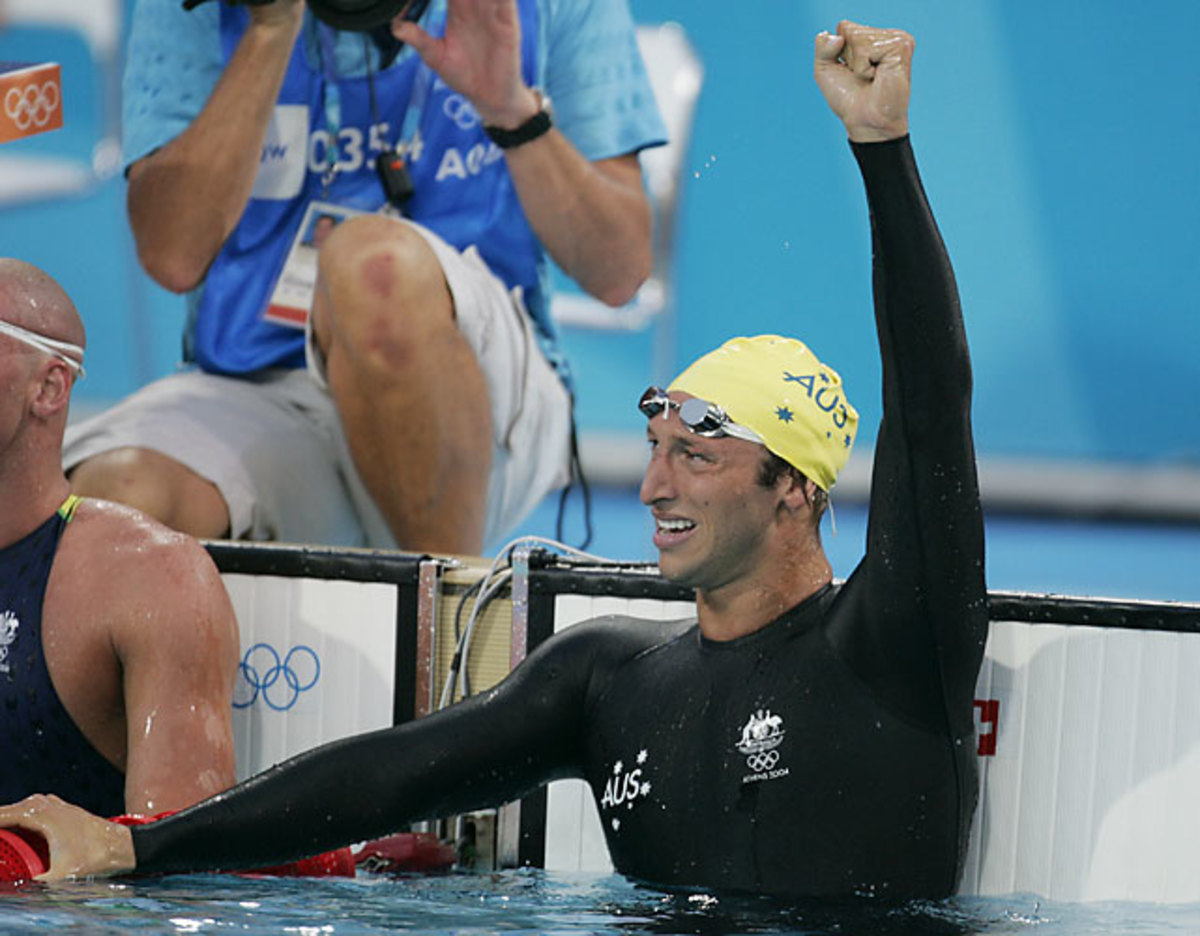
The Thorpedo won nine medals, including five gold, at the 2000 and 2004 Olympics and retired formally in November 2006. On Feb. 1, he ended that retirement with an eye on competing in the London Olympics at age 29. Thorpe is focusing on the 100- and 200-meter freestyle, giving up the 400, an event he won in 2000 and 2004. He's expected to make his competitive return at a November meet in Singapore, where we'll get a good idea of his chances of making the Australian Olympic team. The Aussie Olympic Trials are in March.
Libby Trickett
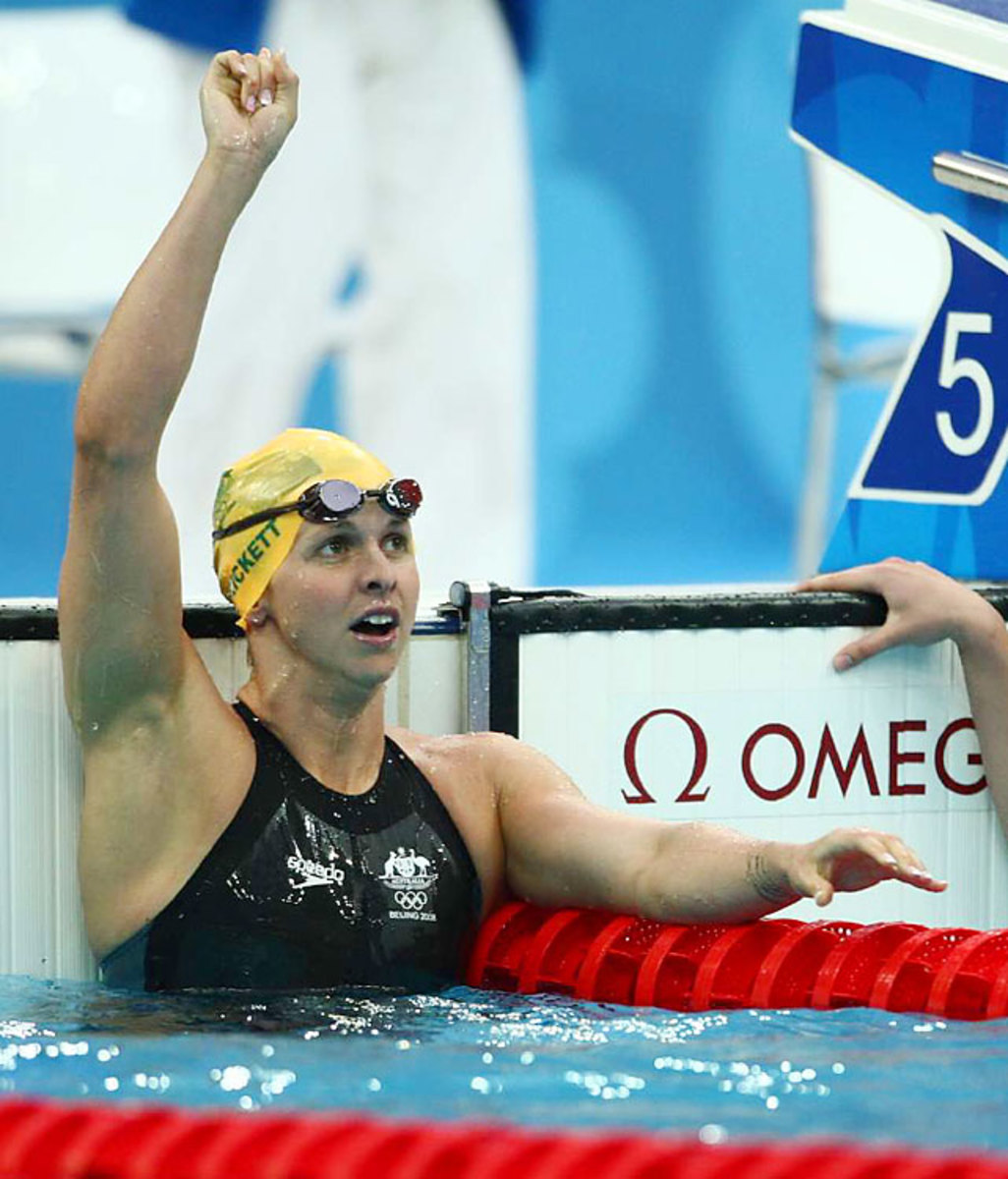
Trickett's retirement was short-lived. The six-time Olympic medalist left the sport in December 2009, thinking she had accomplished all of her goals. She was back in the pool 10 months later. Trickett sat out of competition until this summer due to drug-testing rules and has yet to post an elite time in any of her events -- 50 free, 100 free, 100 fly. If she makes her third Olympic team, Trickett can make Australian history. With two medals, she'll match Dawn Fraser and Petria Thomas as the most decorated Aussie female Olympians.
Marian Dragulescu
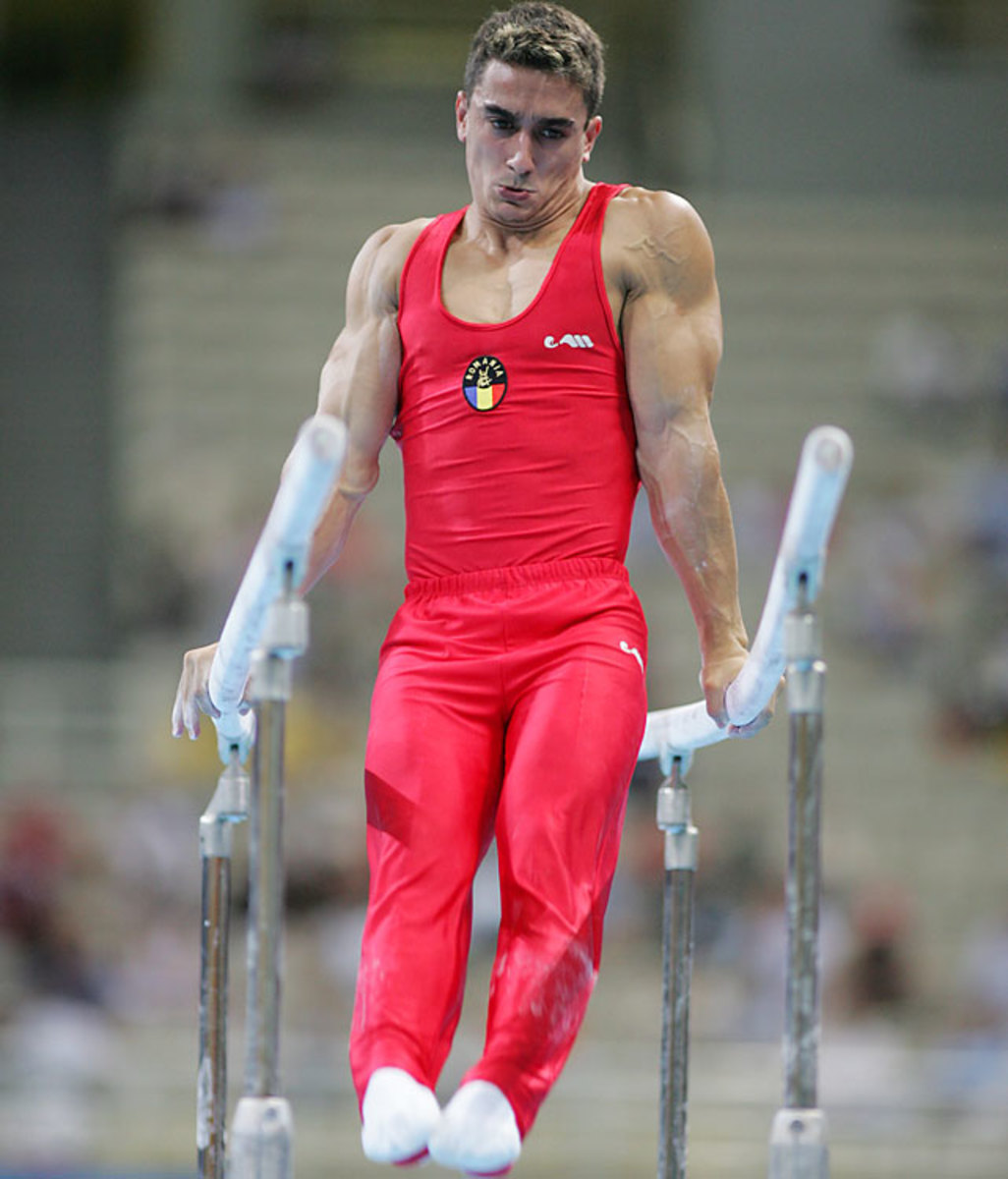
Romania is known for its female gymnasts like Nadia Comaneci, but Dragulescu has been its men's standout for the last decade with three Olympic medals and nine world championship medals. He retired after both the 2004 and 2008 Olympics, only to return to competition both times. Now 30, Dragulescu could be in the medal mix on the floor exercise and vault if he makes it to the London Games for a fourth Olympics.
Paul Hamm
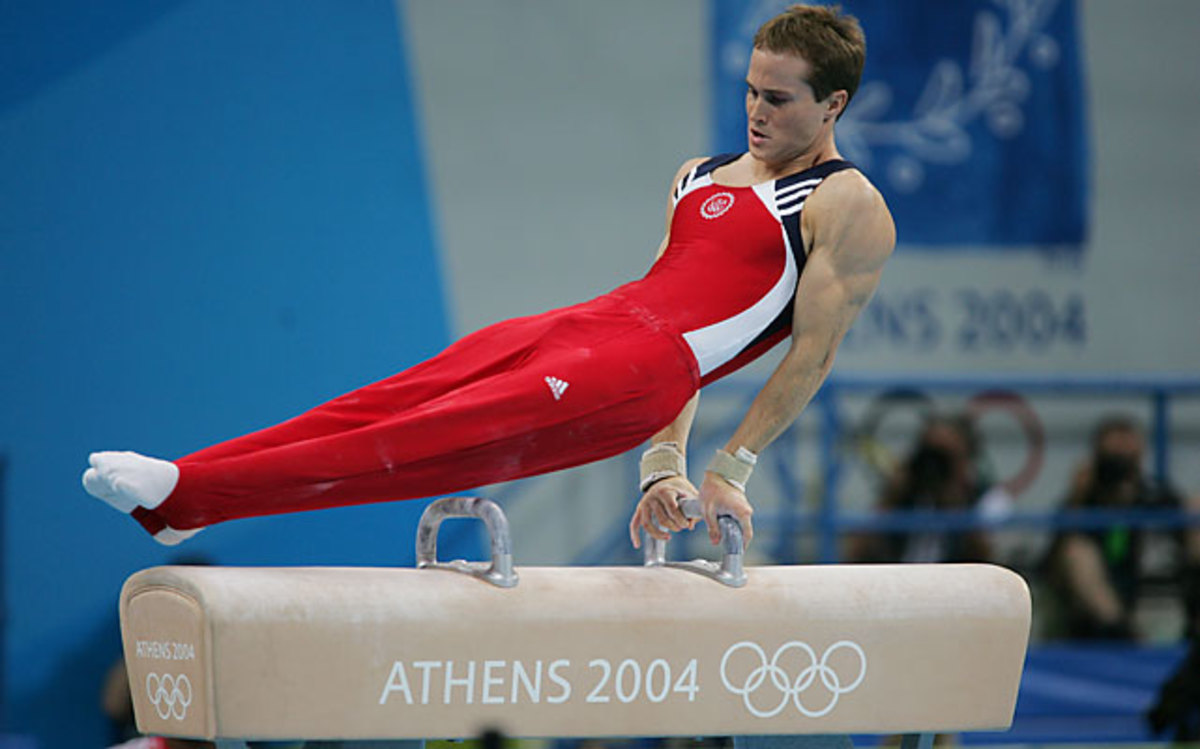
Like Dragulescu, Hamm left gymnastics after both the 2004 and 2008 Olympics. Hamm won the Olympic all-around title, controversially, in 2004. His attempted comeback for the 2008 Games was derailed by a hand injury that forced him off the team. Hamm's latest comeback has been interrupted by a shoulder injury and a recent incident with a cab driver. If this comeback bid is succesful, Hamm can help the U.S. accomplish a golden goal. No U.S. men's team has won the Olympic title in a fully attended Games.
Shawn Johnson
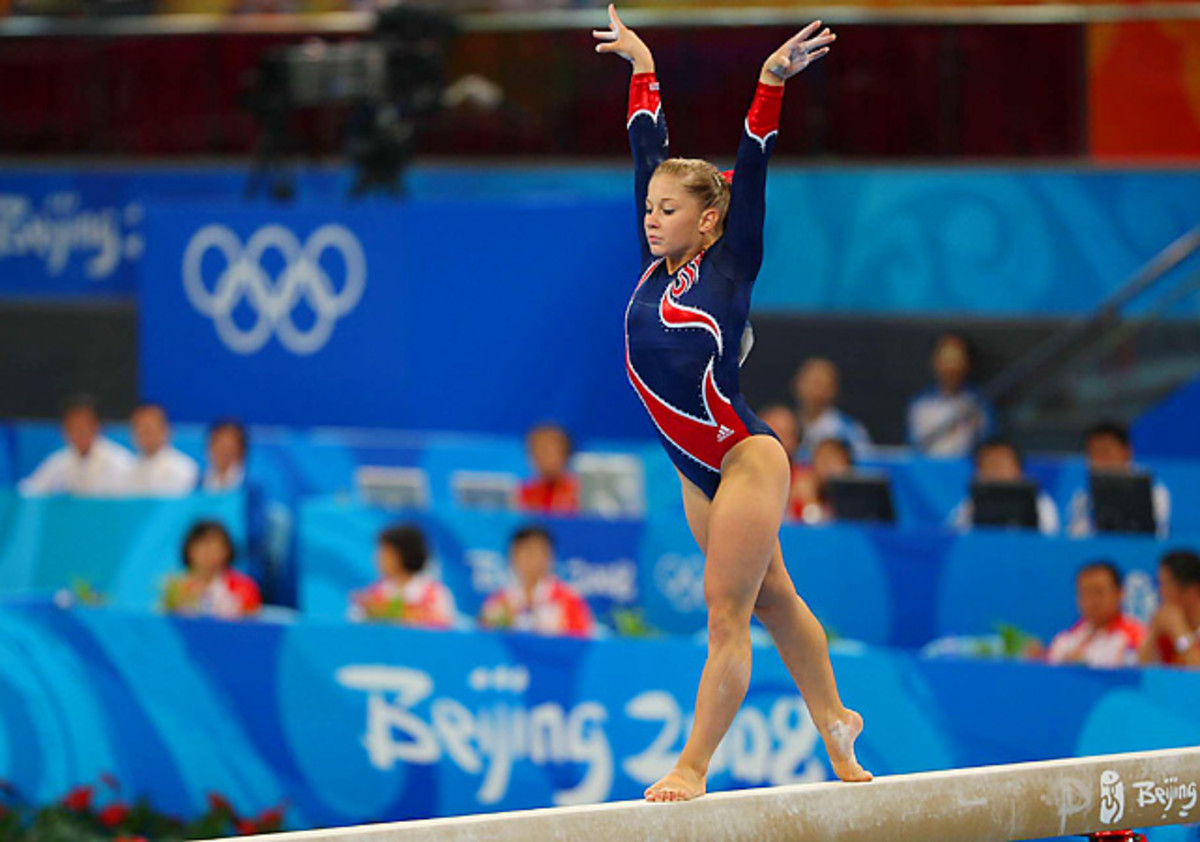
Johnson was saddled with silver medals in Beijing, getting second in the team, all-around and floor exercise before finally breaking through to win the balance beam. She took a break after the Olympics, winning Dancing with the Stars in 2009 but blowing out her left knee in a January 2010 ski accident. In recovery she decided to make another run at the Olympics. Her competitive comeback began this summer, but Johnson could not shake off enough rust to make October's world championship team. Improvement over the next year will be key for her chances to make the Olympic team.
Nastia Liukin
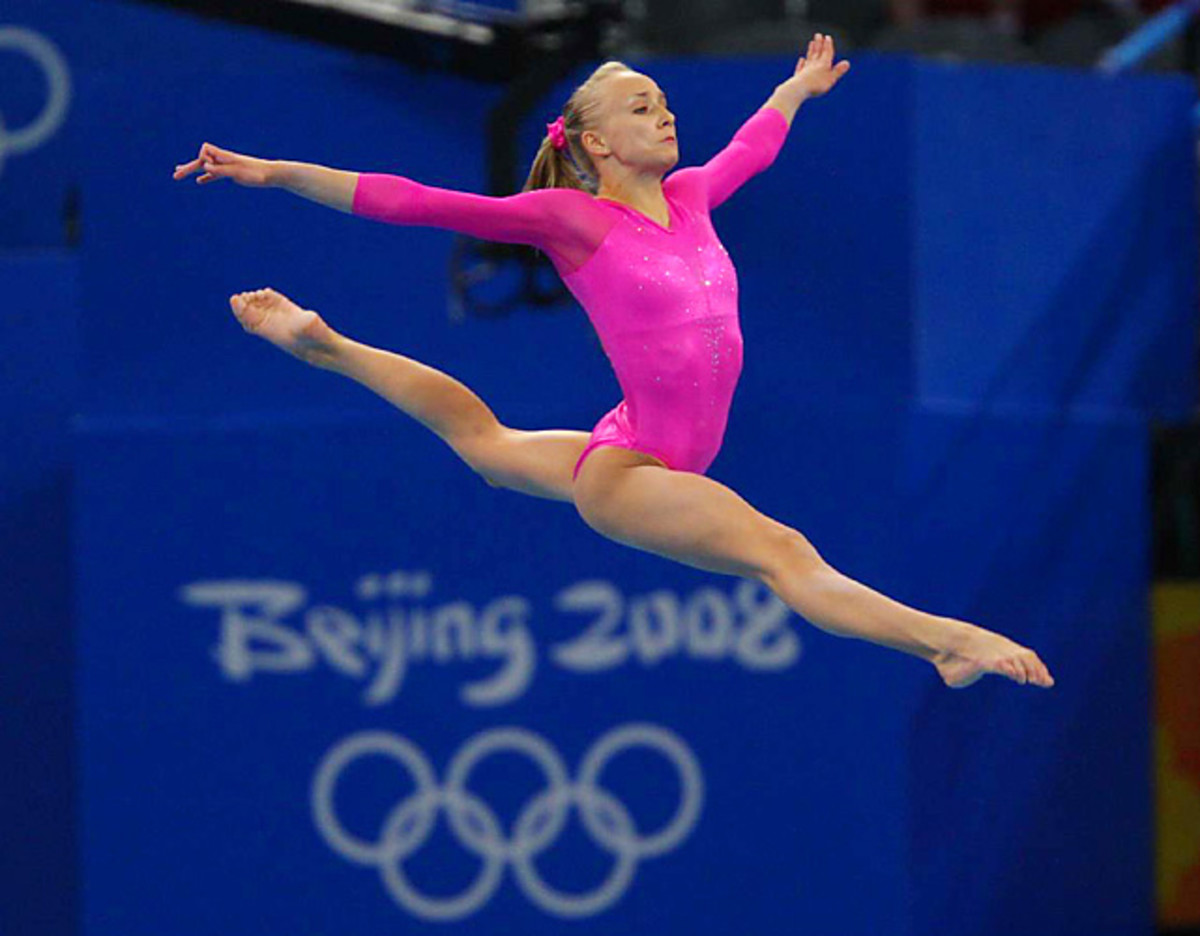
Liukin announced her comeback in October, but she was never really away from the sport. After winning the all-around title in Beijing, she stuck close to her family's three gyms in Texas and became an athlete representative for the International Gymnastics Federation as well as staying on the athlete drug-testing list. Liukin doesn't plan on going for another all-around title. Rather, she intends to focus on the uneven bars and balance beam, events she won the silver medal on in 2008.
Chellsie Memmel
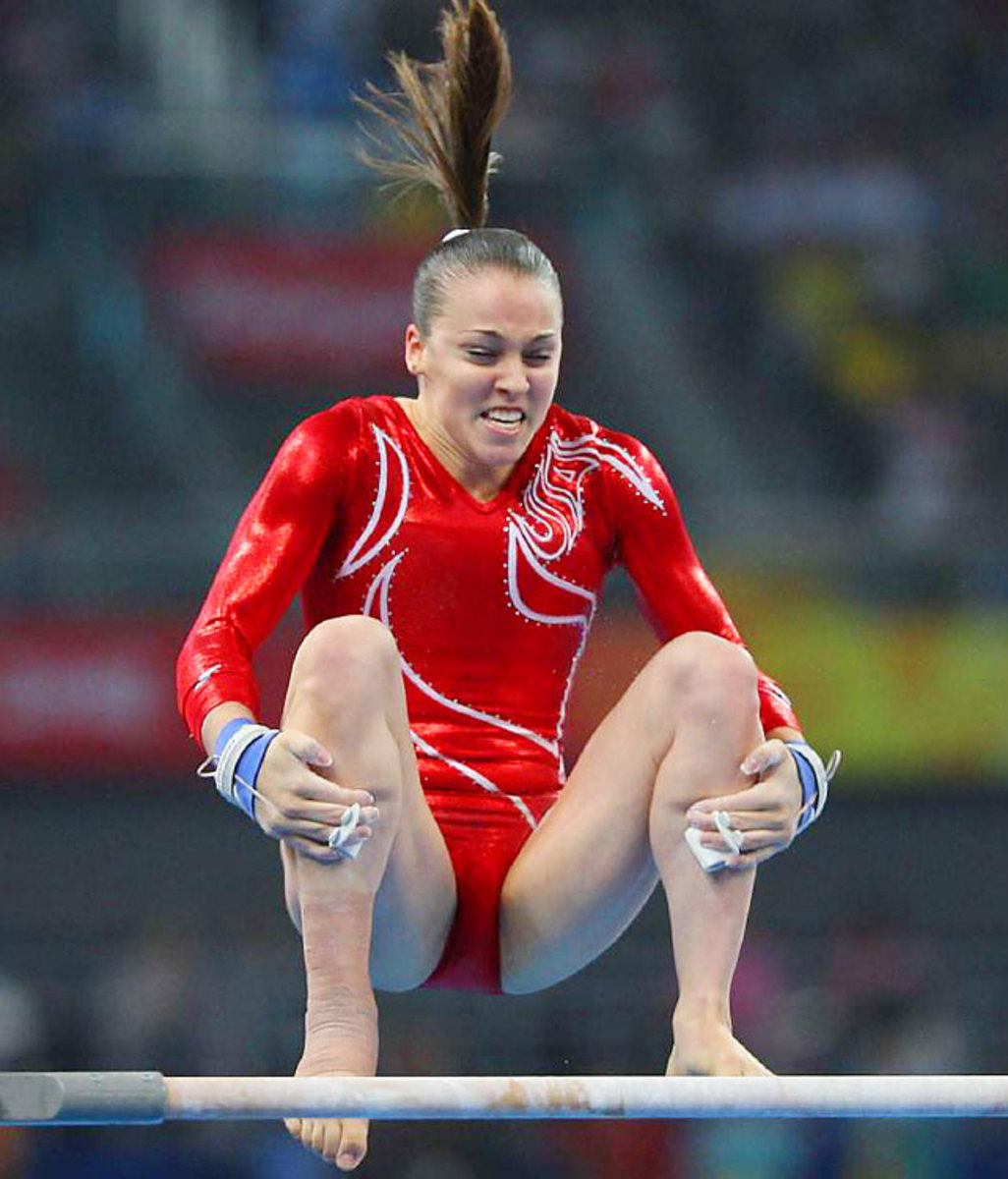
Memmel's comeback this year was a bit overshadowed by that of her 2008 Olympic teammate Shawn Johnson. After two years off, Memmel, like Johnson, made her competitive return this summer but wasn't selected for the world championship team. A series of foot, shoulder and ankle injuries have interrupted an otherwise stellar career. When healthy, Memmel, 23, is one of the world's best. She beat Nastia Liukin by .001 to win the 2005 world all-around title.
Catalina Ponor
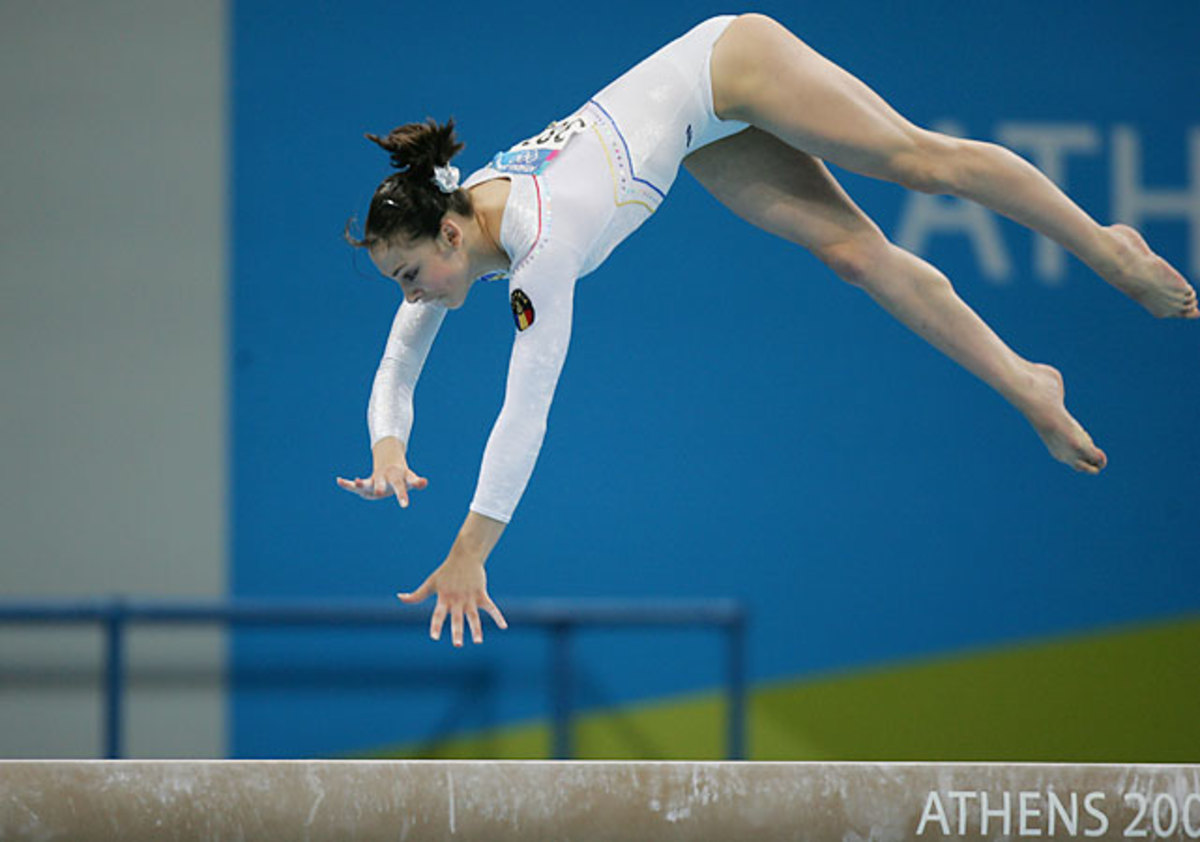
In 2004, Ponor was the only non-swimmer to win three gold medals at the Olympics. She was just 17. A rift with Romanian gymnastics and its new coaches, a brief retirement and injuries dotted her resume in the next Olympic cycle. She retired again in December 2007. Ponor finally came out of retirement in April, after Romania brought back its 2004 coach, Octavian Bellu. She won two golds and one silver at August's Romanian championships but is not yet allowed to compete internationally due to drug-testing rules for athletes coming out of retirement.
Alicia Sacramone
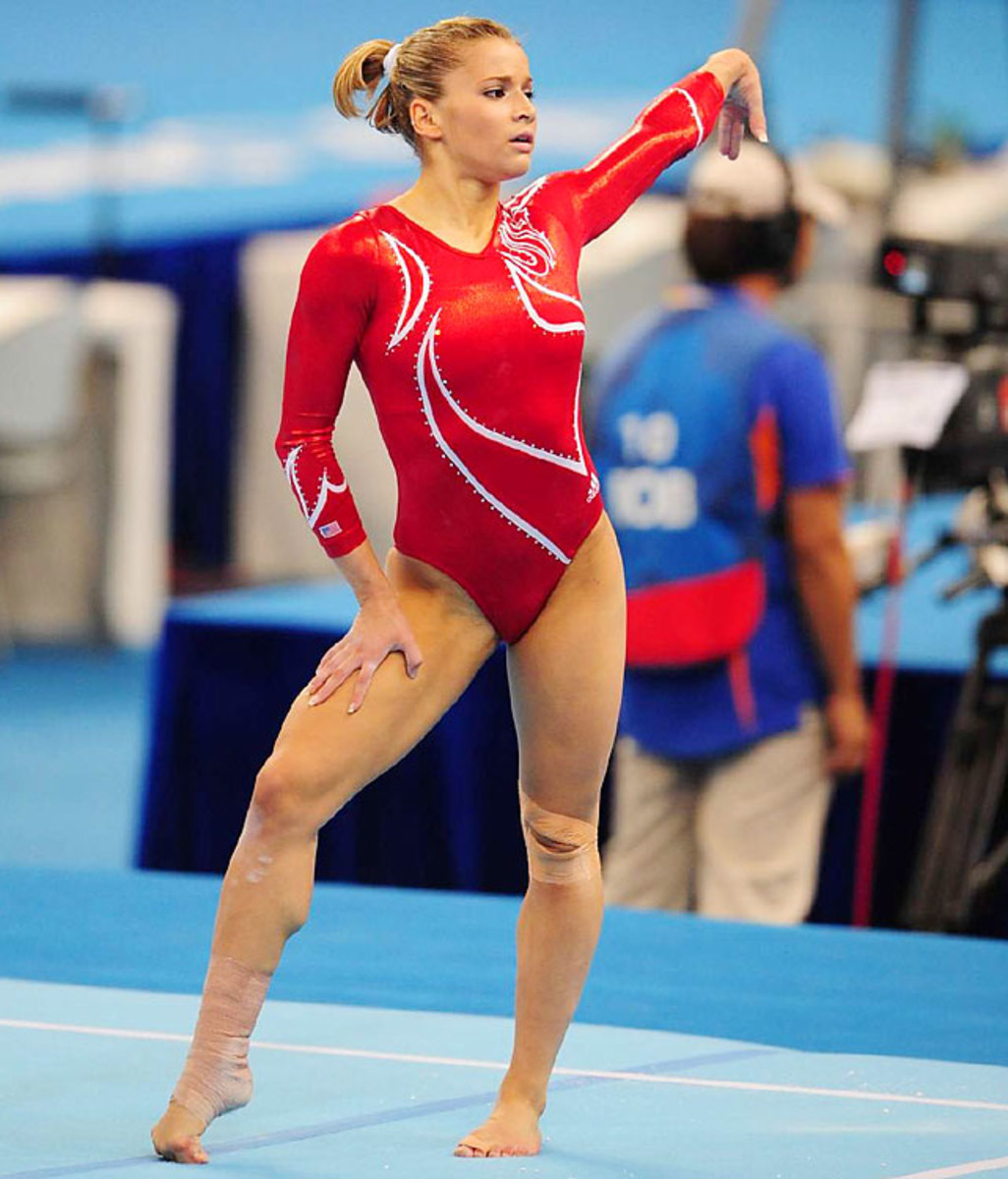
Sacramone hopes for a redeeming Olympic Games in London. She had a tear-filled experience in Beijing, falling off the pommel horse and stumbling on floor exercise as the U.S. women came in second to China in the team competition. She took a year off, but her name resurfaced in headlines for striking up a relationship with quarterback Brady Quinn in 2009. Sacramone won the world vault title at the 2010 world championships, made the 2011 worlds team and is a strong bet to be the oldest member of the 2012 Olympic team at age 24.
Justin Gatlin
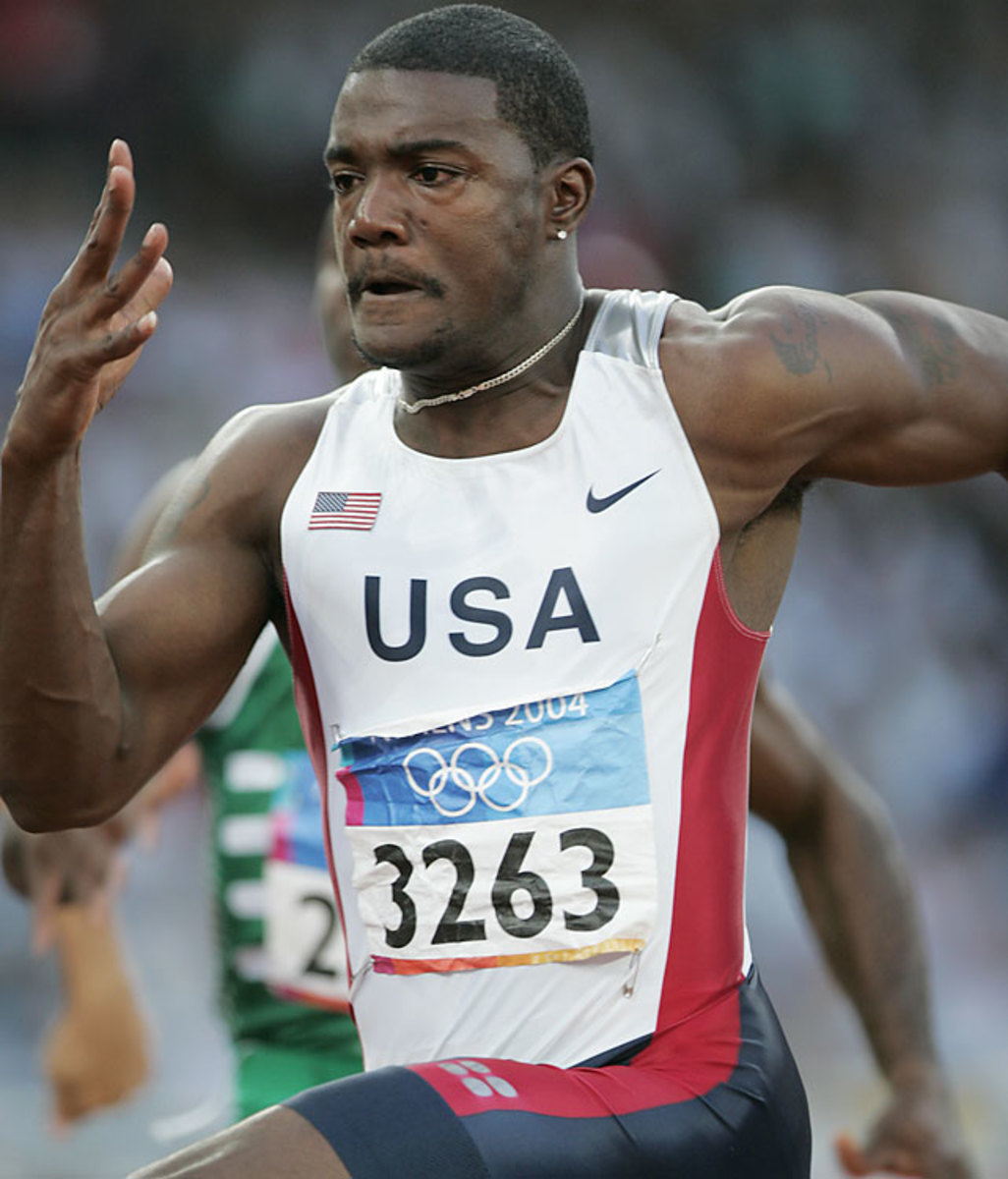
Unlike everybody else on this list, Gatlin's absence was drug related. The 2004 Olympic 100-meter champion, 2005 world champion and one-time world-record holder tested positive for "testosterone or its precursors" in 2006. Courtroom battles reduced a possible lifetime ban to four years, and he returned to sprinting in 2010. Gatlin has yet to equal his doping-clouded then-world record (9.76 seconds) in his comeback, but he was second at the 2011 U.S. championships in the 100 meters in 9.95 seconds. Frostbitten feet slowed Gatlin at the world championships, where he bowed out in the semifinals. He'll be fighting with Tyson Gay, Walter Dix and others for one of three spots on the 2012 Olympic team in the 100 meters.
Kurt Angle
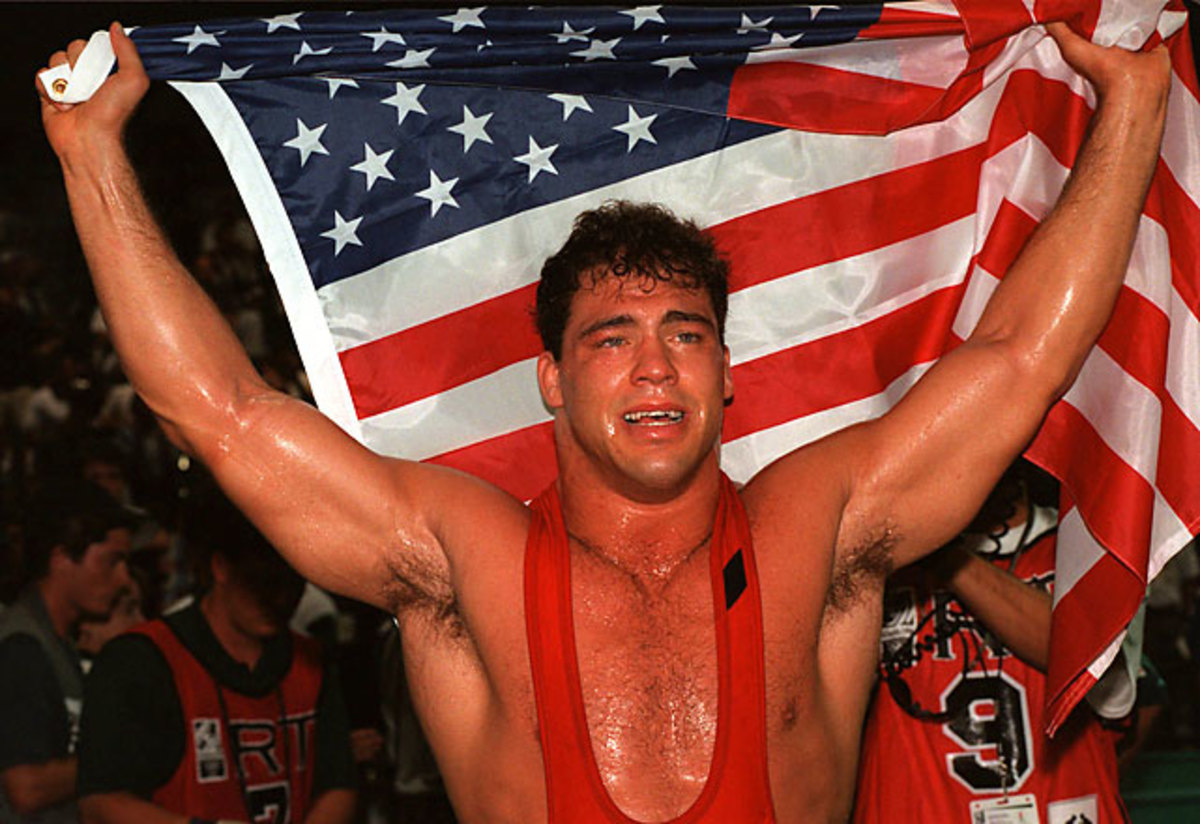
Angle won Olympic wrestling gold in the 220-pound division in 1996 and then took up pro wrestling for the WWE and, later, TNA. The 42-year-old has dedicated most of 2011 to comeback training while also defending his TNA title belt. Skepticism over his bid for London is rampant, given pro wrestling's reptuation. Angle admitted an addiction to painkillers and to taking human growth hormone and steroids in the past. But he says he's over it and targeting the Olympic trials in April.
Henry Cejudo
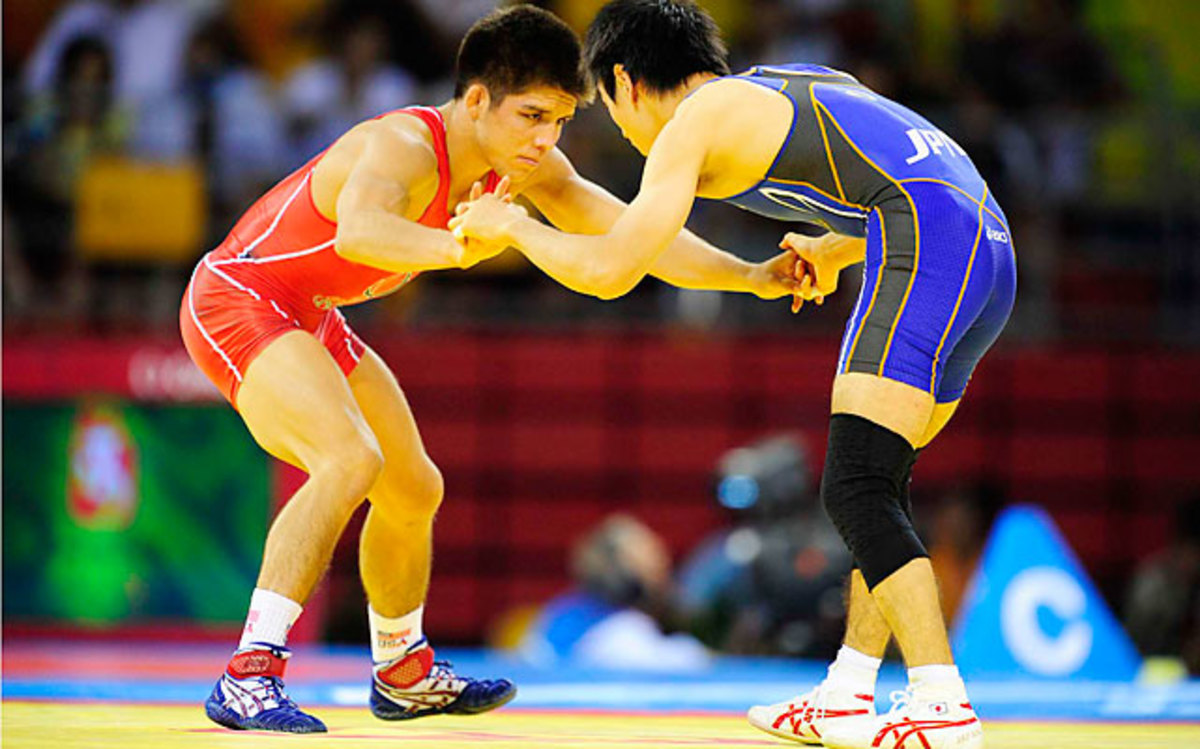
The son of undocumented Mexican immigrants, Cejudo made history in Beijing, becoming the youngest U.S. wrestler to win Olympic gold. He took nearly three years off before returning to the mat at a May charity event in Times Square. He's got a fairly open path to regaining his spot on the Olympic team in the 121-pound freestyle division. Without him, the U.S. failed to medal in the weight class at September's world championships but did place high enough to earn the U.S. an Olympic berth.
Rulon Gardner
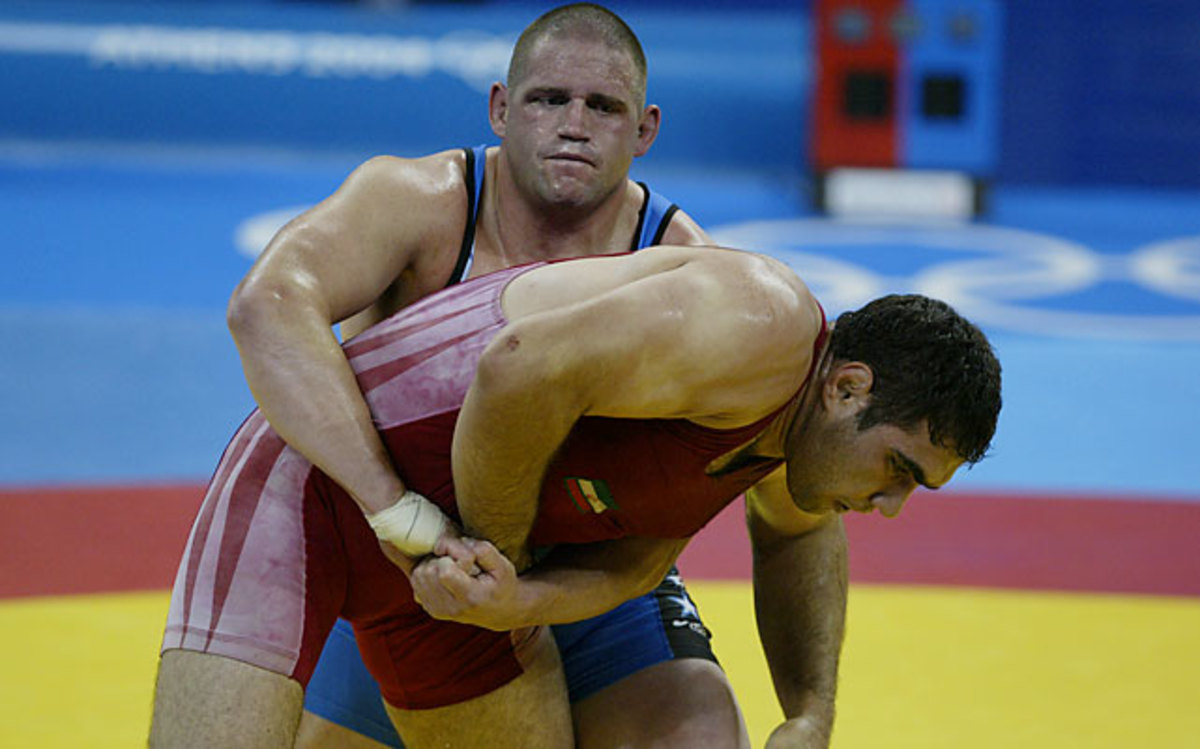
Gardner, 40, considers himself lucky to be alive let alone in the physical shape necessary to attempt an Olympic comeback. The 2000 Olympic Greco-Roman champion ballooned to 474 pounds following his 2004 retirement. He went on NBC's The Biggest Loser this year and reportedly lost nearly 200 pounds. Gardner left the door open for an Olympic run, but he has yet to surface in competition.
Cael Sanderson
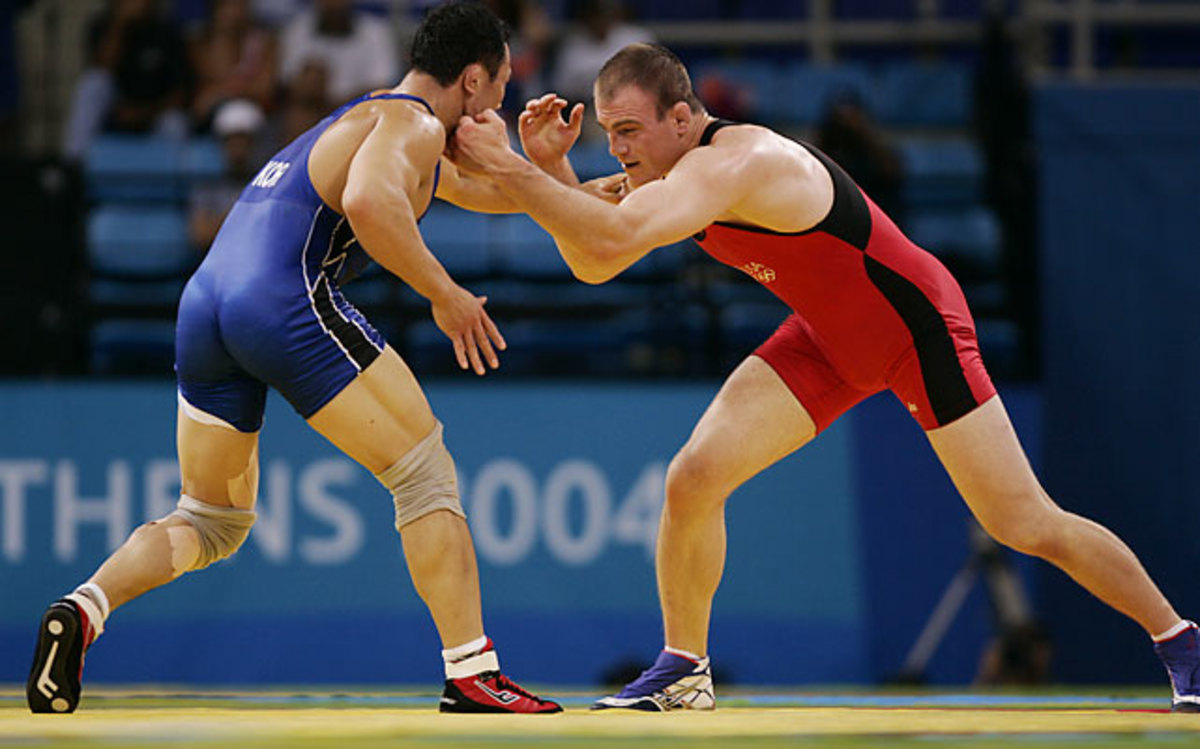
Sanderson took seven years off from competing after winning the 2004 Olympic 185-pound freestyle title. He coached at his alma mater, Iowa State, where he went 159-0 as a competitor, and then headed Penn State's program. Fired up by his Nittany Lions pupils, Sanderson came back this spring. He was successful given his lengthy layoff, finishing fifth at the world championships in his weight class. It might not have been good enough for him, though. Sanderson, 32, told NCAA.com he was unsure if he'll continue his comeback , saying he wanted "to go climb in a hole somewhere" after his fifth-place finish.
Kristin Armstrong

Armstrong's steady rise in cycling peaked at the Beijing Olympics, where she won the time trial. She backed that up by winning the 2009 time trial world championship. Then she stepped away from the sport to start a family. Her son, Lucas, was born Sept. 15, 2010. Armstrong announced her return later that year and was slated to race this year in September's world championships. In a surprising move, USA Cycling bumped her off the team days before the time trial and after she had already flown to Denmark to compete.
